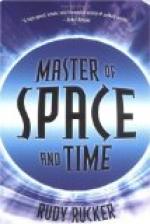By 1901 Carty was ready with another invention which was to place the telephone in the homes of hundreds of thousands who, without it, could scarcely have afforded this modern necessity. This was the “bridging bell” which made possible the party line. By its use four telephones could be placed on a single line, each with its own signal, so that any one could be rung without ringing the others. Its introduction inaugurated a new boom in the use of the telephone.
Theodore Vail had resigned from his positions with the telephone companies in 1890 with the determination to retire from business. But when the panic of 1907 came the directors of the company went to him on his Vermont farm and pleaded with him to return and again resume the leadership. Other and younger men would not do in this business crisis. They also pointed out that the nation’s telephones had not yet been molded into the national system which had been his dream—a system of universal service in which any one at any point in the country might talk by telephone with any other. So Vail re-entered the telephone field and again took the presidency of the American Telephone and Telegraph Company.
One of his first official acts was to appoint John J. Carty his chief engineer. Vail had selected the right man to make his dreams come true; Carty now had the executive who would make it possible for him to accomplish even larger things. He set about building up the engineering organization which was to accomplish the work, selecting the most brilliant graduates of American technical schools. He set this organization to work upon the extension and development of the long-distance telephone lines.
As a “hello boy” Carty had believed in the possibility of the long-distance telephone when others had scoffed. He has told of an early experience while in the Boston exchange:
One hot day an old lady toiled up the inevitable flights of stairs which led to the telephone-office of those times. Out of breath, she sat down, and when she had recovered sufficiently to speak she said she wanted to talk to Chicago. My colleagues of that time were all what the ethnologists would rank a little bit lower than the wild Indian. These youngsters set up a great laugh; and, indeed, the absurdity of the old lady’s project could hardly be overstated, because at that time Salem was a long-distance line, Lowell sometimes worked, and Worcester was the limit—that is, in every sense of the word. The Lowell line was so unreliable that we had a telegraph operator there, and when the talk was not possible, he pushed the message through by Morse. It is no wonder that the absurdity of the old lady’s proposal was the cause of poorly suppressed merriment. But I can remember that I explained to her that our wires had not yet been extended to Chicago, and that, after she had departed, I turned to the other operators and said that the day would come when we could talk to Chicago. My prophecy




